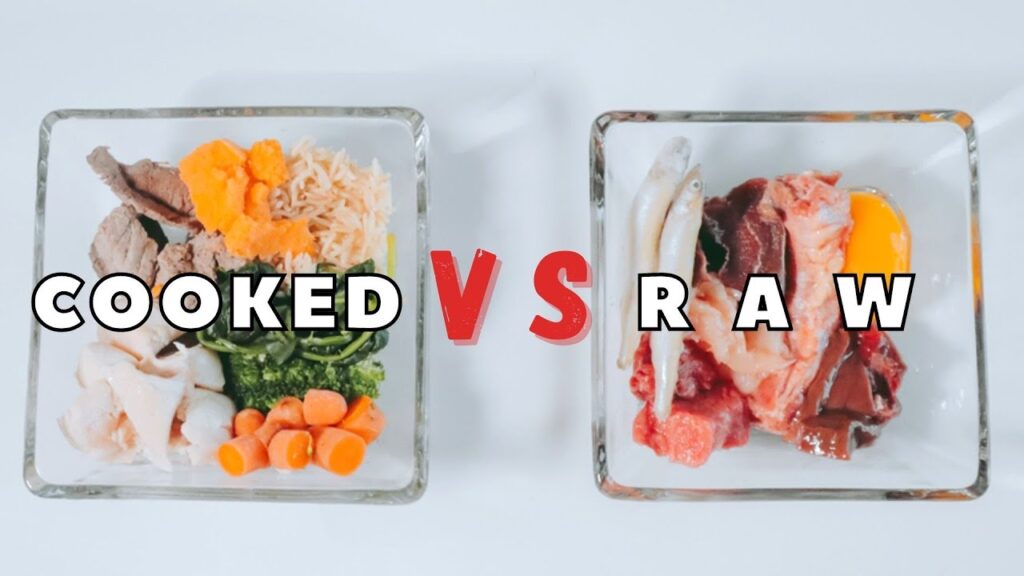The Great Debate: Raw vs. Cooked – Which is Better?
by siteadmin

In the realm of culinary discussions, few debates spark as much fervor as the age-old question: Is it better to eat food raw or cooked? From health enthusiasts to seasoned chefs, opinions on this topic vary widely, each side staunchly defending its stance. Let’s delve into this gastronomic showdown and explore the merits of both raw and cooked foods.
The Raw Advantage:
Proponents of raw food tout its nutritional superiority. They argue that cooking can destroy essential vitamins, minerals, and enzymes present in fruits, vegetables, and other natural ingredients. Raw foodists often point to studies suggesting that heat-sensitive nutrients like vitamin C and certain B vitamins can be depleted during cooking.
Moreover, raw foods are praised for their vibrant flavors and textures, offering a sensory experience that cooking can sometimes alter or diminish. Think of the crispness of a freshly picked apple or the juiciness of a perfectly ripe tomato—these qualities are often best appreciated in their raw state.
Additionally, many adherents to raw diets claim increased energy levels, improved digestion, and better skin health as some of the benefits they experience. For them, consuming food in its natural, unadulterated form is not just a dietary choice but a lifestyle that promotes overall wellness.
The Cooked Camp:
On the other side of the culinary spectrum, advocates of cooking argue that heat can enhance the nutritional value of certain foods. Cooking can break down tough fibers in vegetables, making nutrients more accessible for absorption. For example, lycopene, a potent antioxidant found in tomatoes, becomes more bioavailable when tomatoes are cooked.
Cooking also kills harmful bacteria and parasites, reducing the risk of foodborne illnesses. Through the application of heat, we can transform raw ingredients into a myriad of delicious dishes, unlocking complex flavors and aromas that raw food may lack.
Furthermore, cooking allows for greater culinary creativity. Techniques like roasting, grilling, sautéing, and baking can elevate simple ingredients into gourmet meals, expanding the possibilities of what we can create in the kitchen.
Finding Balance:
In reality, the raw vs. cooked debate isn’t so black and white. Both approaches offer unique benefits, and the key lies in striking a balance that aligns with individual preferences and dietary needs.
For some foods, cooking is essential for safe consumption and optimal nutrient absorption. Meats, poultry, and seafood must be cooked thoroughly to eliminate harmful pathogens. Likewise, certain vegetables, like potatoes and root vegetables, are more palatable and easier to digest when cooked.
On the other hand, incorporating raw fruits, vegetables, nuts, and seeds into your diet can provide a wealth of vitamins, minerals, and enzymes that may be diminished through cooking. Raw salads, smoothies, and snacks offer refreshing alternatives that can invigorate the palate and contribute to a varied and balanced diet.
In the raw vs. cooked debate, there is no one-size-fits-all answer. Both approaches have their place in a healthy diet, and the optimal choice depends on factors such as personal preferences, nutritional goals, and individual tolerances.
Rather than viewing raw and cooked foods as adversaries, embracing a diverse array of culinary techniques can enrich our dining experiences and nourish our bodies in different ways. Whether you prefer a sizzling steak hot off the grill or a refreshing bowl of crunchy salad greens, the most important thing is to savor each bite and enjoy the journey of exploring the endless possibilities of food.
In the realm of culinary discussions, few debates spark as much fervor as the age-old question: Is it better to eat food raw or cooked? From health enthusiasts to seasoned chefs, opinions on this topic vary widely, each side staunchly defending its stance. Let’s delve into this gastronomic showdown and explore the merits of both…
Recent Posts
- Compact Culinary Champions: Space-Saving Kitchen Appliances for Petite Spaces
- Essential Kitchen Appliances: Must-Haves for Every Culinary Enthusiast
- The Great Debate: Raw vs. Cooked – Which is Better?
- Nourishing Your Body: The Importance of Nutrition
- Transform Your Cooking Experience: A Guide to Essential Kitchen Appliances
